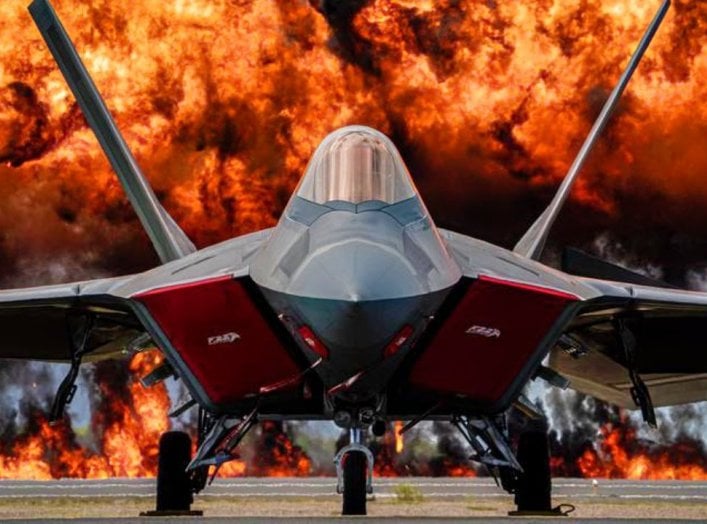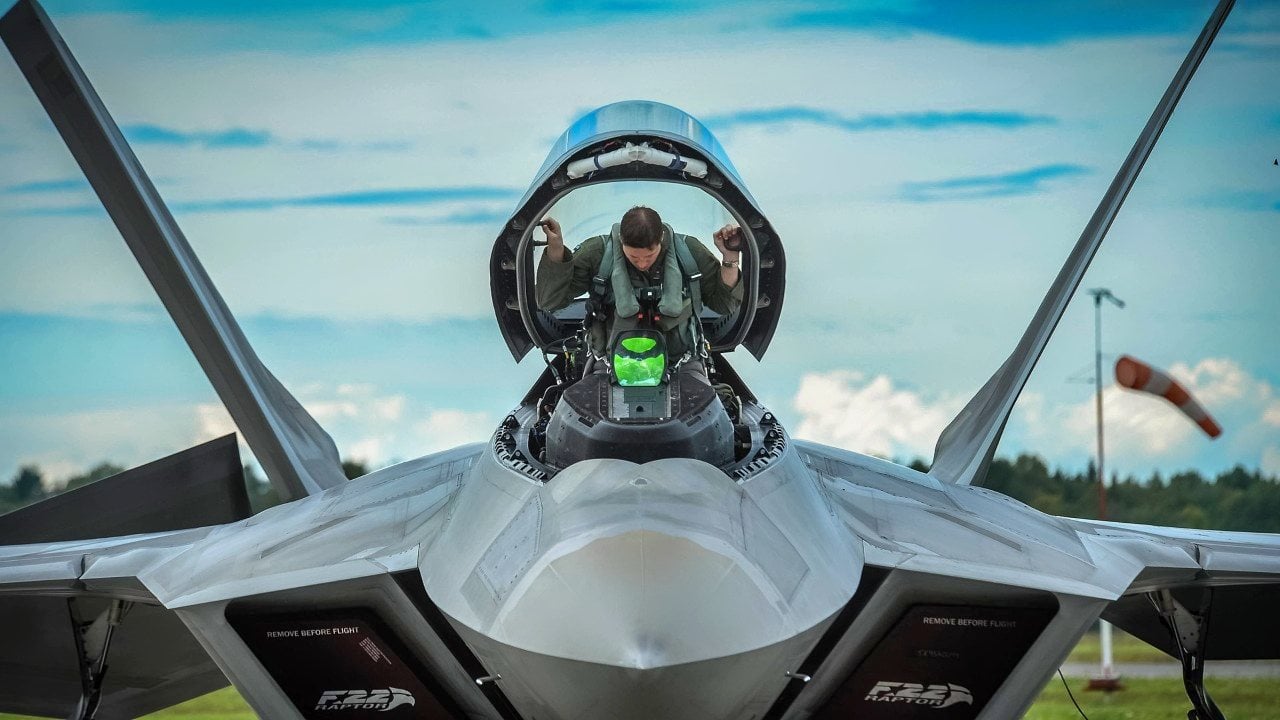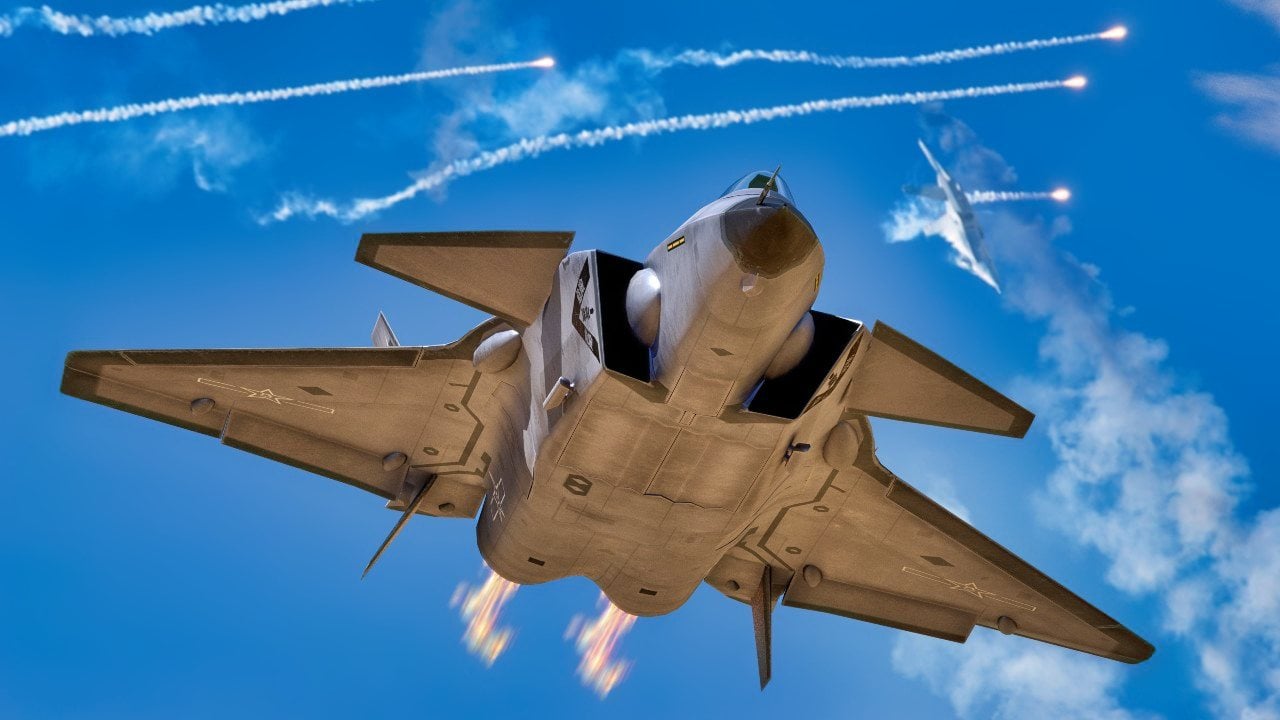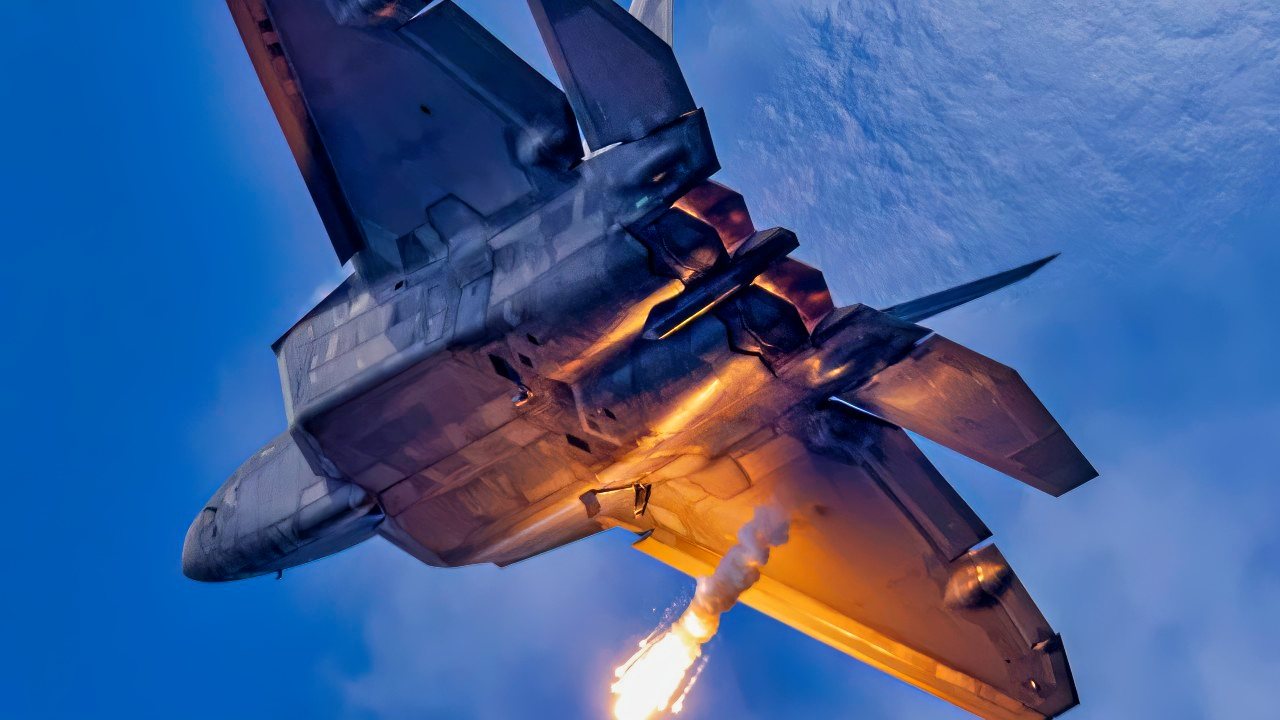China Can Beat the U.S. Air Force in a War

China’s war planners have not only beefed up their numbers of aircraft but they have also expanded their technological prowess. China has constructed a bevy of what they are calling Fifth-Generation warplanes to rival America’s F-22 Raptor and F-35. Many technology analysts argue that China’s Fifth-Generation warplanes aren’t as good or stealthy as America’s. But that’s beside the point.

For 20 years, the Chinese People’s Liberation Army Air Force (PLAAF) has striven to reach parity with the United States Air Force. A recent Pentagon report highlights the various ways that China’s air force has at the very least, become a true near-peer competitor to the USAF.
In many respects, the Chinese air force might be able to overwhelm the Americans in a fight over Taiwan by sheer numbers of warplanes.
Chinese generals have planned for a 96-hour air war for dominance in the skies above Taiwan. They plan for surgical strikes against key infrastructure nodes. China’s forces have planned for a decapitation strike against the Taiwanese government, too. Much of these moves would be a prelude to an invasion of Taiwan.
China needs an air force that is both large enough to swamp whatever territorial defenses Taiwan has, and to defend its territory and invasion force from the likely military responses of the United States and its regional allies.
China’s war planners have not only beefed up their numbers of aircraft but they have also expanded their technological prowess. China has constructed a bevy of what they are calling Fifth-Generation warplanes to rival America’s F-22 Raptor and F-35. Many technology analysts argue that China’s Fifth-Generation warplanes aren’t as good or stealthy as America’s.
But that’s beside the point. China doesn’t need to be pitch-perfect with anything they’re building. They just need to be good enough—which they are.
The old Maoism doctrine of “quantity having a quality of its own” combines nicely here with the old axiom that, “geography is destiny.” China’s targets, whether it be northern India, the South or East China Seas, or Taiwan are all near China's shores.
These territories are distant from America.
China's Home-Field Advantage
Thus, the U.S. military must deploy its forces across vast distances and rely upon regional partners for basing and refueling rights to get its military nearby to China’s area of conflict. Beijing enjoys the equivalent of home-field advantages over the Americans and massive industrial capabilities to churn out their warplanes like butter.
The fact that China’s planes aren’t as sophisticated as America’s is also, unfortunately, an advantage for China. Their planes can be replaced at a much more reliable, faster, and easier rate than America can deploy, repair, and replace its warplanes.

Take the F-22 Raptor, for example. In every wargame scenario the Pentagon runs, the introduction of even a small number of Raptors can tip a potential battle with Chinese forces in America’s favor.
Yet, there are a limited number of those warplanes. And while these planes can do more than previous generations of warplanes, if faced with significantly higher numbers of Chinese fighters, they will eventually be taken down. What's more, China's inventory of stealth warplanes is set to surpass that of America's.
As for the F-35, the U.S. military’s preferred replacement for the aging fourth-generation warplane fleet, there are many problems with this vehicle.
First, China stole the detailed schematics of this warplane as early as 2005, during a cyber operation known as Titan Rain. They have had ample time to copy the plane as well as to build countermeasures against it.
Second, the F-35 is not nearly as good of an air-to-air fighter as the F-22.
Yet, former President Barack Obama discontinued the production line of the F-22 in 2009 to save costs. The number of F-22s the U.S. air fleet has at its disposal is the highest number it will have until the vaunted sixth-generation warplane is ready in a decade or so.

Third, the F-35 is far more expensive plane than most Chinese planes to produce and maintain. If airframes are lost at a faster clip than what America’s limited industrial capacity can replace in wartime, then those assets are gone, and strategic vulnerabilities are created in the American defense.
There’s the added problem that has plagued America in the post-World War II strategic environment. Whereas America, as a self-styled global power—a superpower, no less—has expansive interests in basically every region in the world, China’s core strategic interests remain close to Chinese territory. Of course, that means that possible war with the West would likely be fought closer to Chinese homes.
But that means that China can tailor their regional forces to pack a heavier punch against the distracted, strained, and stretched international U.S. forces.
Going to War with Our Suppliers?
Meanwhile, imbalances and inefficiencies plague America’s military supply chain. In fact, the president of leading American defense contractor Raytheon chided U.S. policymakers over the summer for risking war with China.
That’s because so much of America’s defense supply chain runs through China. Will Beijing let the U.S. military have open access to wartime supplies in the event of a conflict between the United States and China? Don’t be ridiculous. China has America by the short hair.
China, on the other hand, does not have these problems. Not only has China worked assiduously to proof its society and economy against Western economic sanctions, but it has furthered ties with nearby powers—notably Russia—to ensure that its industrial base will remain untouched by any conflict with the West.

There remain vulnerabilities for China. But in the specific case of China’s massive air fleet and the proximity of their targets to Chinese forces, China could defeat the U.S. alliance in an air war over Taiwan. With America's possible loss of air dominance over Taiwan, China's invasion would have a free hand to do whatever it wanted to against Taiwan's defenders--and Taiwan would be isolated away from its Western allies for the duration of the invasion – unless America sought to significantly escalate against China which is unlikely.
- Questions and Answers
- Opinion
- Motivational and Inspiring Story
- Technology
- True & Inspiring Quotes
- Live and Let live
- Focus
- Geopolitics
- Military-Arms/Equipment
- Security
- Economy/Economic
- Art
- Causes
- Crafts
- Dance
- Drinks
- Film/Movie
- Fitness
- Food
- Games
- Gardening
- Health
- Home
- Literature
- Music
- Networking
- Other
- Party
- Religion
- Shopping
- Sports
- Theater
- Health and Wellness
- News
- Culture

